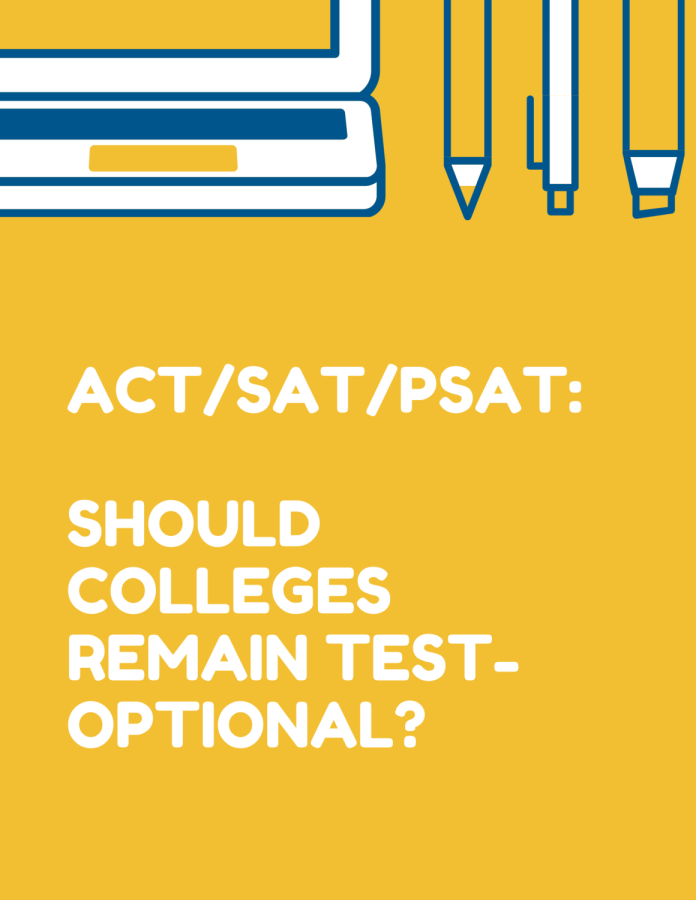Walker: Should colleges remain test-optional?
Standardized testing has been incorporated into the college admissions process for decades. Has COVID-19 showed us it’s time to change?
October 1, 2022
In March, the Massachusetts Institute of Technology announced it was reinstating its SAT/ACT requirement for future admissions cycles after two years with a test-optional policy.
MIT was the first prominent university to steer away from the large test-optional movement that was a result of the pandemic, and the decision reignited the debate over the value of standardized test scores in college admissions.
During the 2020-2021 and 2021-2022 admissions cycles, most colleges in the U.S.
temporarily suspended their SAT and ACT requirements because students were unable to take the tests due to COVID-19 concerns. This test-optional movement served as a trial for many universities that wanted to see if implementing test-optional policies would diversify their classes while upholding their educational standards. I believe this time used to experiment with various policies will be very important in the long run because this issue should be handled on a school-by-school basis. No single policy will work for every university, and each institution needs to find what works best to serve its constituents.
Traditionally, colleges have used standardized test scores to distinguish top applicants, which critics claim limits diversity. Applicants who come from high socioeconomic backgrounds have more resources to prepare for standardized tests, including tutors and ACT/SAT prep books, putting others at a major disadvantage. While many hope the holistic review of applications will address this issue and the pilot policies will be implemented permanently, the future is uncertain. The approaching end date for many of the test-optional pilot policies raises the question: Will colleges remain test-optional?
A majority of colleges have extended their pilot policies for varying lengths because of success with the holistic review of applications. The holistic approach to reviewing applications captures a number of factors that may not be considered in a standard admissions process and places less value on traditional academic factors such as GPA and test scores. This system of evaluating potential students is believed to be much more equitable and is the reason the long-term implementation of test-optional policies has gained so much support.
So far, very few colleges have made the decision to follow in MIT’s footsteps and reinstate the standardized test requirement. For the 2022-2023 admissions cycle, a mere 5.5% of colleges have announced test required policies. This is not to say more colleges will not follow suit, as many colleges have only extended policies temporarily. The institutions reversing the test-optional policies are rejecting the idea that the tests hurt diversity. MIT’s dean of admissions, Stu Schmill, wrote in a blog post, “not having SATs/ACT scores to consider tends to raise socioeconomic barriers to demonstrating readiness for our education.” Although the research completed by MIT counters the claims critics of the test requirements make, it is very specific to MIT’s unique academic environment and is difficult to generalize. Not every university requires two semesters of calculus and calculus-based physics, and for that reason, not every university needs to require test scores to determine an applicant’s academic preparedness based on the research MIT completed.
Until more research is completed surrounding the topic, it will be difficult to determine which policy belongs in college admissions. Even then, I believe it will depend on the priorities of each individual university. While some schools will revert back to the test requirements, a lot of progress has been made. It is important that this conversation continues and colleges make the decision that makes the application process as fair as possible.









